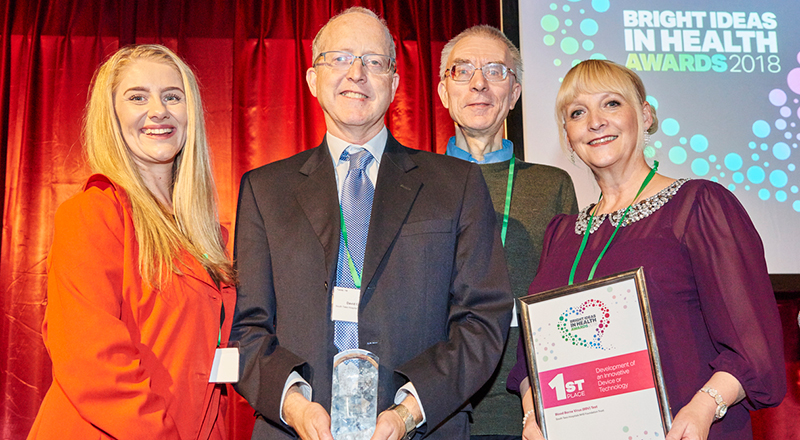New technology could lead to quicker diagnoses of infectious diseases
Academics and health professionals are combining their expertise to trial new technology which could speed up the diagnosis and treatment for thousands of hepatitis and HIV patients.

Late diagnosis of blood borne viruses (BBV), such as HIV and hepatitis, remains high in the UK despite efforts to increase testing among those at risk of infection.
Experts at Teesside University and South Tees Hospitals NHS Foundation Trust have developed a new software application to assist GPs and health-care workers to make decisions about BBV- testing in real time.
The technology is currently undergoing pilot testing in several GP surgeries and, if successful, could ultimately lead to quicker diagnosis and treatment, improved patient outcomes and also reduce transmission of BBVs.
There is often a reluctance for GPs to offer BBV-testing due to issues around the process of consent. It is also a time consuming process as GPs have to examine each patient’s individual medical records before being able to make an informed decision.
Concerns have been raised that when patients arrive at hospitals, there are regularly cases where BBV-testing should have been picked up earlier.
The team of researchers and experts, led by Dr David Chadwick, Consultant in Infectious Diseases at South Tees Hospitals NHS Foundation Trust, Professor Paul Van Schaik, Professor of Psychology at Teesside University and Dr Gareth Forbes, a GP at Leadgate Surgery in Consett, have developed a software module which can be applied to the database of existing medical records. It provides an automatic prompt to GPs and other health-care workers each time a BBV test should be recommended for a patient, speeding up the process and potentially enabling quicker diagnosis and treatment.
The decision to test for BBV is still in the hands of the GP, but the technology provides an automatic prompt based on existing medical information, rather than having to read through individual patient records.
The technology has recently won the Medipex NHS Innovation Award for Primary Care, as well as the Bright Ideas in Health Award for development of an innovative device or technology.
It would be a relatively small addition to the existing system that has the potential to make a significant difference.
Professor Van Schaik said: 'We are trialling the technology at the moment and will then need to compare the results for BBV-testing with and without this technology. The rationale is that it has the potential to speed up the testing and diagnosis of infectious diseases – improving patient outcomes and potentially saving lives.'
Professor Van Schaik has researched and published in areas around technology acceptance for over 20 years. His main role in this project is to test the acceptance of the new system from patients and health-care workers.
'The two main factors with any new technology are usability and usefulness', explained Professor Van Schaik.
'Is it easy to use? Will GPs be able to make better and more informed decisions? Will it improve patient outcomes? The data from the pilot testing should provide the answers to these kinds of questions.
'The impact, if successful, would be the take-up of this technology across the country and improved outcomes for patients. It would be a relatively small addition to the existing system that has the potential to make a significant difference.'
Dr Chadwick is Research Lead for Infectious Diseases at South Tees Hospitals NHS Foundation Trust and has an interest in HIV and approaches to reduce late diagnosis of BBVs.
He said: 'We hope this innovative technology will reduce late diagnosis of HIV, along with viral hepatitis. As well as being a great accolade for South Tees, it also recognises the important contribution of my research colleagues at The James Cook University Hospital, in primary care and at Teesside University.'
 Teesside University academics join prestigious network of
...
Teesside University academics join prestigious network of
...